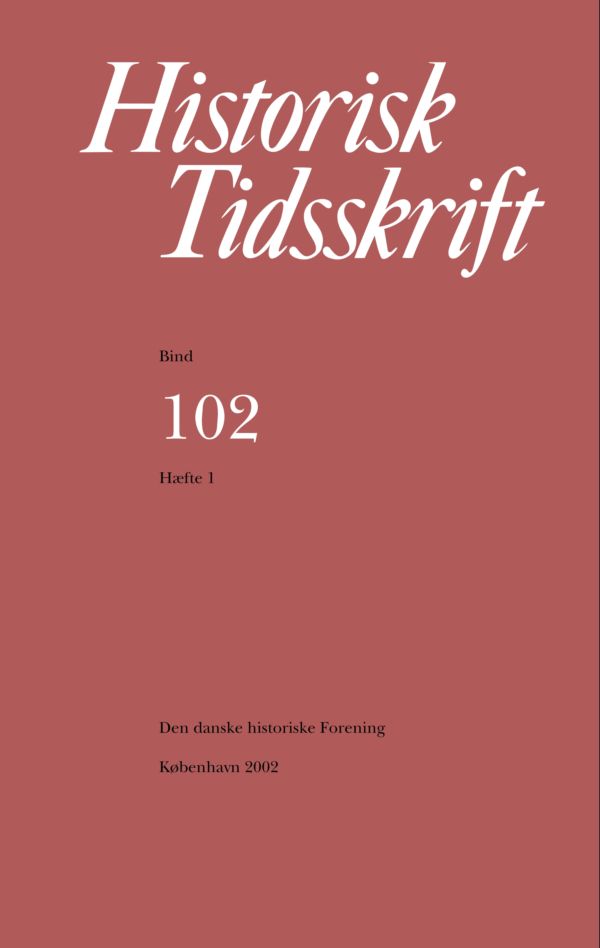Fordelingspolitik, samfundsøkonomi og organisationsinteresser. Den danske arbejderbevægelse og spørgsmålet om tillægspension 1963-1990
Resumé
Distributional Policy, National Economy and Organisational Interests. The Danish Labour Movement and the Question of Supplementary Pension Schemes 1963-1990Comparative welfare studies have pointed towards income related supplementary pension schemes as one of the main goals of post war Scandinavian Social Democracy. The Swedish Social Democratic party showing the way with its political struggle and victory with the comprehensive ATP-reform in 1957, Norway and Finland was to follow in early 1960s. Only the Danish party did never achieve a reform of its own, and therefore Denmark was stuck with the flat rate, universal Peoples Pension (legislated in 1956) and different forms of private supplementary pension schemes. The question is if one can speak of income security as part of a social democratic welfare strategy.The explanations for the Danish Sonderweg are the relative weakness of the Danish Social Democracy, conflicting interest in the labour movement, and institutional bindings from prior pension legislation. Furthermore can be pointed towards the timing of the actual proposals, the national economical context, and a social political tradition for excluding the better off.The article follows the public and internal discussions in the Social Democratic labour movement on the topic of supplementary pension schemes from the early 1960s until the late 1980s. From the proposal for a »Swedish« reform in 1967 with a state-organized national system for all citizens or income earners to the giving up against negotiated labour market pensions in the mid 1980s. Through the investigation of the different proposals for a supplementary pension scheme with some relation to prior income it is possible to argue that social democratic pension politics is not determined by an objective class interest (as often argued in comparative welfare state studies), but is formed (interpreted) by internally conflicting interest.These conflicts have several dimensions: a political, a national economical, and an organisational. In the political dimension the conflict is about the distributional consequences of the pension system. The blue-collar trade unions oppose income relation and want a pension scheme with strong redistributional effects. In the national economical dimension the conflict is about the potentials of a huge central pension fund controlled by the labour movement. The economist from both the Social Democratic party and the labour movement is much in favour of using this tool, whereas a few, but very prominent economists (e.g. the later Minister of Social Affairs Bent Rold Andersen) argued against mixing social political and national economical goals. In the organisational dimension the question is about conflicting goals from the party and the labour movement. The latter wanted a pension scheme mainly for its members using this as a tool for attracting new and keeping old members. The Social Democratic party wanted a universal scheme to attract voters - especially from the new middle classes. It is not possible to understand and explain the internal conflicts of the labour movement and the development of the Danish pension system since 1960 without including all three dimensions. And the conflicts and rivalling strategies mean that one cannot speak of income related supplementary pension schemes as a natural part of a social democratic welfare model. As former Prime Minister Anker Jørgensen put it during a meeting of the party's executive board in 1973: »Questions about pensions are complicated matters where no solutions seem obviously right.«Downloads
Publiceret
Citation/Eksport
Nummer
Sektion
Licens
Ophavsret til bidrag i Historisk Tidsskrift tilhører forfatterne og Den danske historiske Forening som udgiver af Historisk Tidsskrift. For illustrationer gælder den ophavsret, som står anført i billedteksten. Ophavsretslovens almindelige bestemmelser gælder, hvilket vil sige, at ophavsretten gælder i 70 år efter forfatterens død. Bidrag i Historisk Tidsskrift må derfor, med forbehold for en ”moving wall” på tre år, frit downloades, læses, gemmes, anvendes og citeres (med kildeangivelse) i privat og videnskabelig sammenhæng, men de må ikke helt eller delvis genudgives af tredjepart, heller ikke i redigeret form, uden tilladelse fra forfatterne og Den danske historiske Forening. Henvendelse skal i så fald rettes til Historisk Tidsskrifts redaktion på histtid@hum.ku.dk.





